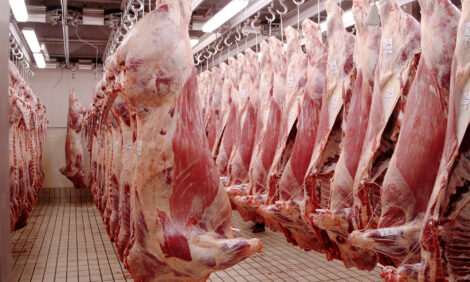



Environmental Efficiency In Farming
IRELAND - A change in the EU agri-environmental policy is needed, away from the “less is more” philosophy, which assumes an inverse relationship between food production and environmental well-being, according to Teagasc environmental researcher Dr Rogier Schulte.Dr Schulte argues that a move towards a policy of environmental efficiency is needed which would be based on meeting the production potential of efficient land.
Dr Schulte was speaking in Brussels yesterday, (12 May), at a meeting of Members of the European Parliament organised by the Alliance of Liberal Democrats, on the topic of “A Fairer and Greener Common Agricultural Policy for the New Century”.
Teagasc researcher Dr Rogier Schulte questioned whether the “less is more” philosophy is inadvertently damaging the global environment. He pointed out that producing less food in Europe may not be beneficial for the environment globally. He argued that it is leading to “environmental leakage” with Europe exporting its environmental problems, creating difficulties in other parts of the world. He warned that current EU policies are leading to “carbon leakage”, and “water leakage” in certain parts of the globe.
He pointed out that in Ireland in the ten year period to 2006, the number of livestock have fallen, reducing greenhouse gas (GHG) emissions. However, Dr Schulte highlighted the fact that world food production has increased in the same period leading to no net reduction in greenhouse gas emissions globally. He argues that Ireland is among the most efficient producers of beef and milk in terms of GHG emissions per kilo of beef or litre of milk produced. A recent FAO study has shown that temperate grassland-based milk production systems have a low carbon footprint.
Dr Schulte points to the use of scarce water resources in certain regions of the world to produce food to be exported to Europe. Describing it as “water leakage”, he argues that it could be more environmentally efficient to utilise productive land in Europe where water is in greater supply to produce more food, instead of producing food where water supplies are vulnerable. Again, he questions this “exporting” of Europe’s environmental responsibilities.
He said: “If we want global trade and global environmental protection, Europe needs to move away from the “less is more” philosophy which influences current EU agri-environmental policy and develop a new philosophy of environmental efficiency.”
The Teagasc GHG working group are organising a major international environmental conference “A Climate for Change - Opportunities for Carbon-Efficient Farming”, which will take place on Thursday 24 and Friday 25 June in the Mansion House Dublin, to address these issues.
TheCattleSite News Desk


